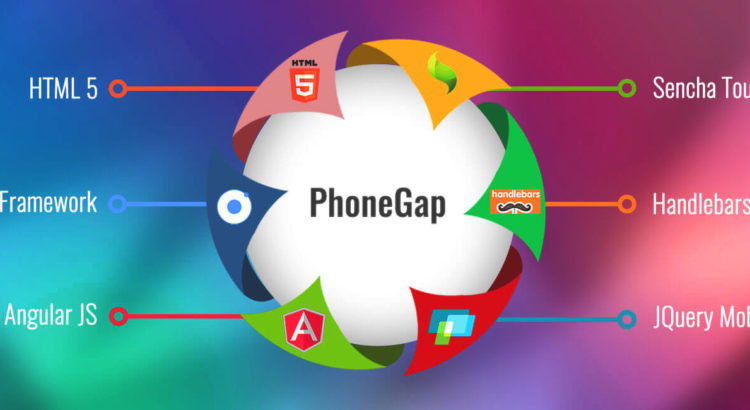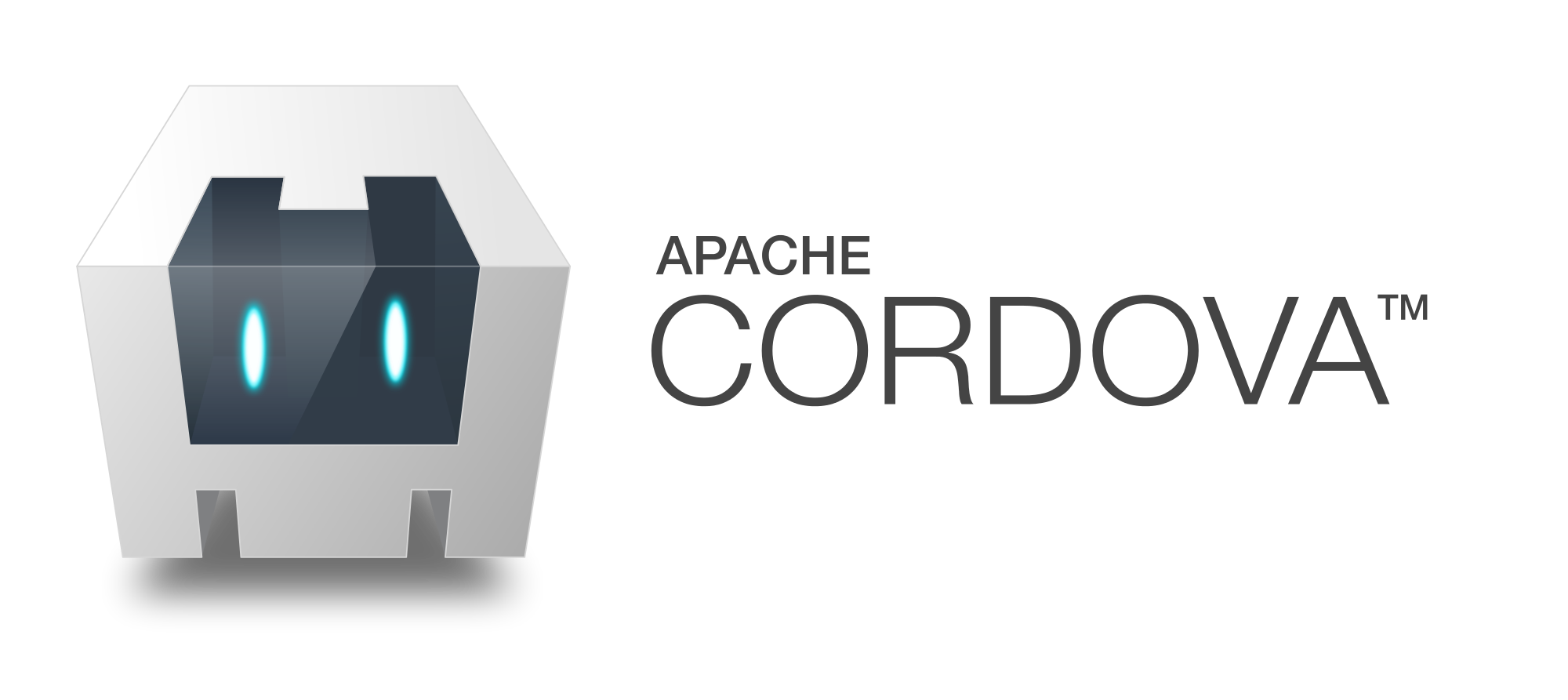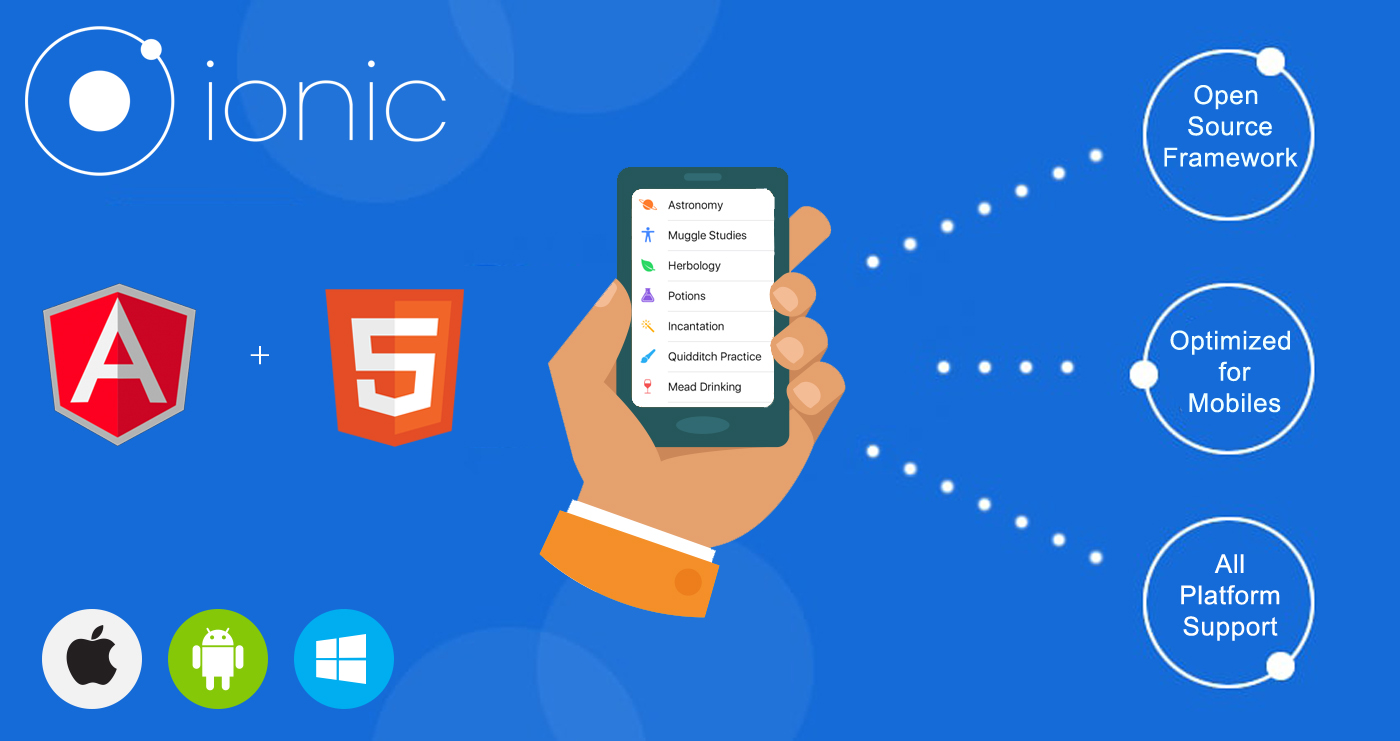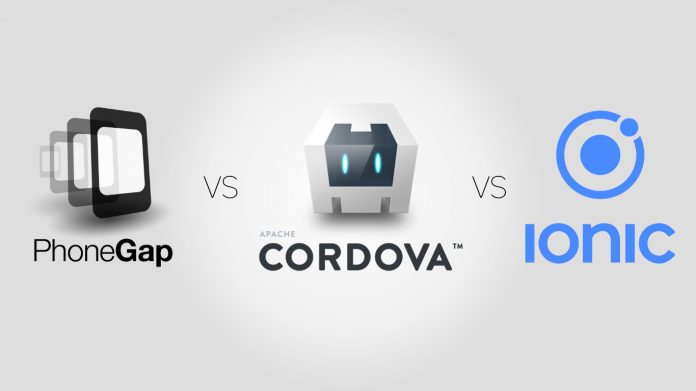Mobiles are a very integral part of one’s life in the current world. Mobile apps have created a whole new experience for mobile users. Mobile apps help the users to communicate, transact, and many more things easily. These mobile apps are developed and pre-installed on mobiles while manufacturing platforms. These apps can also be delivered as web browsers later. This app development has grown tremendously over time such that mobiles without apps are like a big no-no to customers.
The mobile app development requires a framework or platform. Knowing the features, advantages, and disadvantages are very important before choosing a platform. Let’s look at three of the platforms in this article and discuss the differences between them.
PhoneGap Vs Cordova Vs Ionic
Ionic, Cordova and Phone Gap are three of the mobile app development platforms. Many companies have adopted one of these platforms for app development. Some of them include – The Techstars Stack, MAK IT, Sellsuki, Edify, eTobb, HYPH, BetRocket, Dial Once, Die Coder GmbH, Gweepi Medical Inc., Event-driven, DocEngage, Infoshare, Binary.com, StreetHub, WebbyLab, PedidosYa, and others.
PhoneGap a Native Mobile App Development Framework

This is a software development framework released by Adobe system. This platform is used in mobile app development. A developer who wishes to develop mobile apps using PhoneGap does not require prior knowledge of mobile programming languages as this requires one to have only knowledge of web development languages such as JScript, CSS, and HTML.
- It is a stable and robust framework.
- It is the most popular cross-platform framework.
- It uses one code across mobile platforms.
- It is a strong
- It provides a similar user interface across mobile platforms.
- It helps to reuse the existing web development skills and make hybrid applications built on multiple platforms.
- PhoneGap provides the functionality of remote build.
Apache Cordova is empowering PhoneGap

This is also an open source mobile app development framework. It helps to build mobile apps using web technologies such as CSS3, JavaScript, and HTML5.
- Cordova comes with a command line interface tool which helps in building projects, processes, installing plugins and many more processes which makes development easier.
- Cordova provides the core set of components a mobile app needs.
- Cordova API used in the implementation of native mobile functions.
- The native app development time is reduced with Cordova.
- It is a high-quality plugin API.
Develop Hybrid mobile apps with Ionic today

Ionic is a wonderful and front-end framework. It helps to build mobile apps in JavaScript, HTML5, and CSS. It is built on AngularJS and Cordova. The best part of this framework is that is an open-source software development kit.
- It is used to build modern web standards.
- It is used for modern mobile devices.
- Android 4.1 and above versions, iOS 7 and above versions support this framework.
- Ionic also supports the Windows platform and in the building of Windows 10 apps and Blackberry 10 apps.
- This framework allows rapid prototyping.
- It provides higher performance in the final product as the code is mixed with PhoneGap code.
- This framework allows reuse of frontend devs on mobile.
- It is extensible.
- Ionic allows instant preview of the app in the browser and mobile devices by refreshing the page instantly. So as and when changes are made to the app, it is immediately reflected.
- Ionic comes with pre-styled and pre-made components which help in the easy building of UI and themes.
| Features | PhoneGap | Cordova | Ionic |
| Pros | It is open source
It is flexible in that single code can be used to develop app across platforms It is easy to develop mobile apps using this platform It can easily tap the device’s hardware and enhance user experience It is based on plug-in architecture Payment is integrated with app store Tons of libraries are available with PhoneGap |
It is open source
It helps build one app which can be used across all platforms It helps build hybrid app faster It reduces development time The developer need not learn mobile programming languages Many community add-ons are available with Cordova Many frameworks and libraries are available and optimized to work with Cordova |
It is open source
It helps build an app once and use across various platforms It helps to build rich, robust apps It helps in quick development It lowers the cost of development Apps developed using ionic require minimal maintenance Ionic keyboard plugin and ngCordova help to improve the performance of the apps developed by ionic Styles can be overridden by using SCSS |
| Cons | It supports only some functionalities
With native apps, it could be inefficient at times In cross-platform apps, the performance can be low Developers can develop the apps only once. Further development is charged. |
Hybrid apps are not fast when lot of data and functionality is involved
There are lot of issues with cross-browser functionalities There could be compatibility issues with plugins, devices, and platforms. Some APIs are yet not supported by Cordova |
Hybrid apps do not provide swift performance
AngularJS knowledge is a must In-app navigation building is quite complex Only a few animations are available |
Choosing the right framework to build a mobile app is as important as building a mobile app. Hence proper research is vital. Before buying a software development framework or platform, it is imperative to note what features need to be considered.
-
PhoneGap
Features to be considered before buying PhoneGap:
One, can the framework help build an app which works across all platforms? PhoneGap helps build one such app. Since it helps build one app for all platforms, it could be inefficient with native apps at times.
Two, is the performance good? Hybrid applications usually have a lower performance than native apps.
Three, what programming language knowledge is required? Only web programming languages like HTML5, CSS and JavaScript are required.
Four, is the framework open source? It is open source, however, after the initial development, further development is charged.
Verdict: It is the basic mobile app development framework available and comes with a remote build functionality.
-
Cordova
Features to be considered before buying Cordova:
One, can the framework help build an app which works across all platforms? Cordova helps build one such app. Since it helps build one app for all platforms, it could not work faster when apps with lots of data functionality are involved. Also, there could be a lot of issues with cross-browser functionalities.
Two, is the performance good? Hybrid applications usually have a lower performance than native apps.
Three, what programming language knowledge is required? Only web programming languages like HTML5, CSS and JavaScript are required.
Four, is the framework open source? It is open source, however, after the initial development, further development is charged.
Verdict: It is the mobile app development framework built on PhoneGap and supports only local builds. However, Cordova is a better option than PhoneGap for developing hybrid mobile apps.
-
Ionic
Features to be considered before buying Ionic:
One, can the framework help build an app which works across all platforms? Ionic helps to build a hybrid app which works on all platforms and provides PhoneGap and Cordova plugins which help to connect with native apps.
Two, is the performance good? Hybrid applications do not provide swift performance.
Three, what programming language knowledge is required? Only web programming languages like HTML5, CSS and JavaScript are required. Knowledge of AngularJS is a must to use this framework.
Four, is the framework open source? It is open source.
Verdict: This framework requires AngularJS knowledge. The best option to choose among the three frameworks – PhoneGap, Cordova, and ionic. Also, it helps build apps which are more scalable.
Conclusion:
PhoneGap, Cordova, and Ionic are all open source and hybrid application development frameworks. Once the app is developed using these platforms, they can be used on across various platforms. However, each of them has their drawbacks. The best available framework is Ionic amongst the three as it helps build better and highly scalable apps.
If you have read this article, it means that you are either planning to use one of these or trying to enhance your knowledge. This article provides you almost all details regarding the three main software development frameworks available for mobile app development. It explains the features, pros, and cons. It also provides a buying guide for those planning to use a framework/platform for their development activities. Hope this article explains all questions of a user.


Thanks for the article. It helped me.